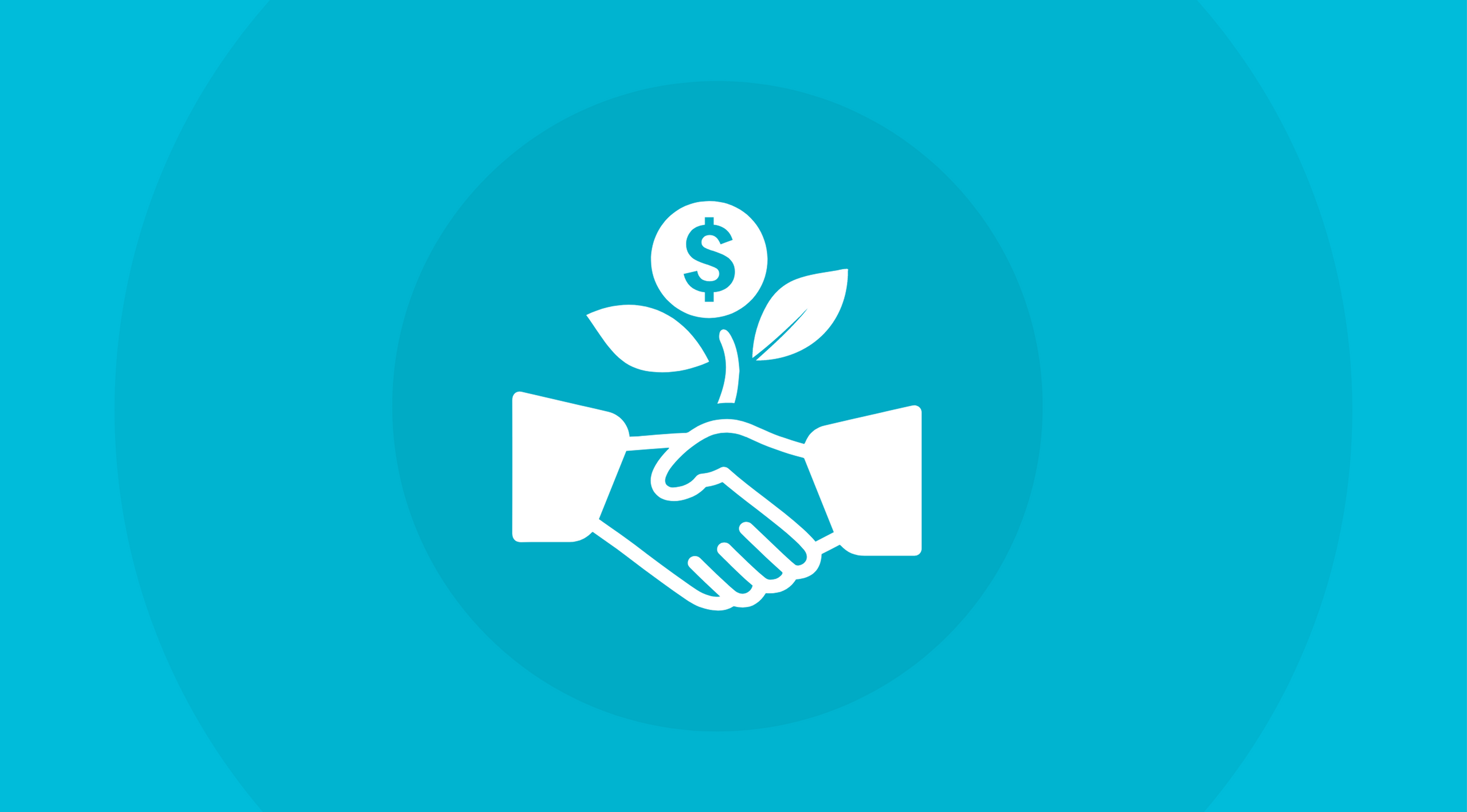When you’re looking to host an event, one of your first concerns might be funding it. While some businesses will have the budget to cover the cost, not all organizations are in the same position. Thankfully, using event sponsorship can help.
Whether you’re hosting an in-person, online, or hybrid event, partnerships with event sponsors can be exceptionally beneficial. They can help with the cost of your event and offer opportunities for things like building your brand awareness, boosting your brand image, and increasing your ticket sales. The benefits for sponsors are similar. Sponsoring your event can increase awareness of their brand and provide them with access to new leads and customers.
Finding the right sponsors requires a bit of work, though. Here are a few do’s and don’ts to keep in mind.
How To Get Event Sponsors: Do’s
Let’s start with a few things you should do when looking to get sponsors for your event:
Know Your Audience
Knowing your audience is vital not only for creating an event they’ll love but for choosing your sponsors as well. Researching your target audience will provide insight into who they are, what interests them, what brands they love, and more.
Look at your past events to get a better understanding of your audience. If this is your first one, don’t worry. There are still other things you can do. For example, take a look at similar events held by your competition. You can also send surveys to the people on your mailing list to find out what they might want from your event.
Brainstorm Brands That Align With Your Target Market
Think about what brands align with the people you want to attend your event. If you send out surveys asking about their favorite brands (or asking them outright who they might like to see), that can provide you with a good jumping-off point.
Choose event sponsors that you know your target market will love to help them feel more connected to your event. You want to make sure that those sponsors align with the image and goals of the event you’re planning, too.
Pro Tip: Do your homework on potential sponsors. Find out if they were involved in any recent events. See if they’ve launched a new product/service or if there’s been a change in leadership. Understanding them will help you determine if they’re a good fit for your event. Additionally, little facts about them can come in handy later when you’re drafting your event sponsorship proposals.
Create a List/Database of Potential Sponsors
You could keep a handwritten list of potential sponsors. A better alternative is to build an online database.
Creating an ongoing list in one location can help to keep you more organized. Keeping it online gives you additional security. Sponsor tools like the ones offered by Events.com will make finding and securing event sponsorships easier as well. For instance, when you load sponsors into your database, the details automatically fill in your proposals, agreements, and activation calendars.
Create Event Sponsorship Proposals
Your event sponsorship proposals are a vital component of encouraging prospective event sponsors to say yes. When you’re writing them, you’ll want to include:
- A bit about your company
- The type of event you’re organizing
- Your target audience and its demographics
- Your unique selling points
- The benefits that your potential sponsors will get if they choose to work with you
Pro tip: A personalized letter with your proposal can go a long way. It shows sponsors that you care about them and that they’re more than the money they might provide. Avoid the temptation to copy and paste. Use the prospective sponsor’s name and include a unique detail that you learned about them during your earlier research.
Cast a Wide Net
One of the last things you want to do is limit yourself when it comes to prospective sponsors. While it’d be nice if everyone you reached out to agreed to work with you, there’s a good chance some of them might turn you down.
If you only reach out to a few potential sponsors, you might not get as many as you need to run your event successfully. Instead, try casting a wider net. However, bear in mind that you still want to make sure any prospective event sponsors align with your brand, your event, and your attendees.
Consider a Trial Deal
Sponsoring an event has its benefits, but it can also be risky. If you’re new to planning and organizing events or you’re a smaller company, consider offering prospective new sponsors a trial deal. Ask for a smaller amount in exchange for fewer (or smaller) incentives.
A tactic like this allows new sponsors to test the waters. If your event goes well, that could encourage them to continue being a sponsor for your future events.
Follow Up
It rarely happens that prospective sponsors get back to you with a reply right away. Like you, the decision-makers are busy people. They may have looked over your proposal but got sidetracked by something else. That doesn’t mean they don’t care or that they forgot about you.
Rather than hope that prospective event sponsors get back to you, be proactive and reach out to them. Ask them for their thoughts on your proposal or if they have any questions. You might even ask them if there’s something you can change to make it better suited to their needs.
Pro tip: Make sure that you give prospective sponsors at least a few days to go over your proposal before following up with them, but don’t wait longer than a week. You want to be fresh in their minds. You may also find that you need to follow up more than once.
Get Sponsors for Event: Don’ts
Now let’s look at a few things to avoid when you’re looking to get sponsors for an event:
Don’t Go After Brands That Aren’t Relevant to Your Audience
It doesn’t matter how big the brand or how well known they are. They must be relevant to your audience or your event to do you any good. Again, doing your homework is vital. You want to make sure that any potential event sponsors you contact or create event sponsorship proposals for make sense for you and your attendees. Otherwise, no one benefits.
Don’t Ignore Smaller Sponsors
The big-name sponsors are great, but you don’t want to overlook or write off smaller ones. They could turn out to be your greatest assets. While they may not be able to provide the most money, they may be more closely aligned with the goals or mission of your event.
Pro tip: The value of these sponsors lies in their growth potential. Forging relationships with them now that grows (with them and you) over time may deliver even greater returns on investment in the long run.
Don’t Wait Too LongÂ
Planning events and finding sponsors takes time. You don’t want to save essential components of the process until the last minute. This includes reaching out and sending event sponsorship proposals too late. There’s a good chance that many of them have their budgets planned out in advance. You want to get to them while you still have time to be included in that planning.
Pro tip: Don’t send your event sponsorship proposals too early, either. If you send them before you’ve had a chance to talk with prospective sponsors and develop a good rapport, they may think you’re only after their money.
Don’t Allow Sponsors To Dominate Your Event
There’s nothing wrong with asking for a sponsor’s input when planning an event, especially if they have more experience. Their knowledge and expertise can be exceptionally beneficial. You also want them to be able to promote their brand as guests.
The key here is that they’re guests. Sponsors shouldn’t dominate your event. Don’t let overbearing sponsors walk all over you or try to take things over.
Don’t Get Discouraged by Hearing “No”Â
There’s a very good chance that at least a few prospective sponsors will say “no.” Don’t get discouraged or write them off for any future events you might plan. People say no for various reasons, and they may have nothing to do with you. The sponsor’s time and/or funding may be too limited. Or, it could be that your proposal didn’t quite convince them. If you feel someone who said no might still be a good sponsor in the future, keep them in mind.
Don’t Be Afraid To Turn Down Sponsors if Necessary
There may be times when you have to turn down a sponsor or even terminate a relationship with one. For instance, if someone offers you less money than you’re comfortable with, their sponsorship may not be worth your time. Someone who’s unreliable may not be a good fit either. While you don’t want sponsors dominating your event, you also don’t want them to be completely absent.
Event Sponsorship: Getting the Best Sponsors for Your Events
The right event sponsors can make all the difference in the success of your events. Understanding your audience, determining the best potential sponsors, and drafting solid event sponsorship proposals are essential. At the same time, there are a few vital things to avoid in the process, like ignoring smaller sponsors or getting discouraged by hearing “no.”
Securing sponsors isn’t always the easiest thing to do. It takes hard work and dedication. Learning the do’s and don’ts of how to get event sponsors can also help to ensure your success.







